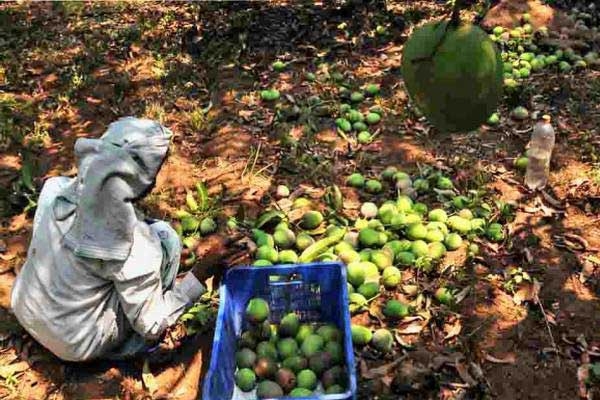
(Image source from: The Hindu)
Mango growers in Karnataka, are facing a hard-bitten time as the exporting business has hit due to Nipah virus panic.
This year, growers were looking to reap a good bounty by exporting their mango crops and more mangoes to different foreign countries as they have received Global Good Agriculture Practice (GAP) certificate in 2018 that enables them to export grown mangoes in their farmlands.
According to State Mango Development and Marketing Corporation Ltd, which is also known as Mango Board, earlier this year 7,000 to 8,000 tons of mangoes were exported to various countries, comprising the United States, Singapore, London, Brazil, the United Kingdom and else counties. This year, they were anticipating almost double export.
As many as 225 growers were GAP-certified in 2017 and were growing mangoes in 200 hectares whereas this year, the number of GAP-certified farmers has increased four times. The GAP-certification is essential for products exportation to European and other Western countries.
Karnataka, being one of the top growing states in the country cultivates mangoes in 1.7 lakh hectares in 16 districts including Kolar, Chikkaballapur, Dharwad, and Ramanagara. The state has the capacity to grow more than 10 to 12 lakh tonnes of mangoes annually during the season.
Speaking to the media source, Mango Board M D Nagaraj said there was less yield due to hailstorm, rain and strong wind this year. Mangoes from India, particularly from Karnataka, started going to Australia, Gulf countries, U.S. and European countries.
"Meantime, there was the Nipah virus scare. In many countries, especially the Middle East, they have prohibited products from Kerala where Nipah virus broke out," he said.
The Agricultural and Processed Food Products Export Development Authority (APEDA), a Government of India undertaking, has come to rescue of the farmers. "APEDA is issuing a place of origin certification for these products, including mangoes. As mangoes are grown in Karnataka (not Kerala), with the help of the certification, we are now able to export. We are hoping we will cross last year’s figure," Nagaraj said.
Experts are perpetually saying that mangoes are not harmful to consume and one should not be frightened to eat them as the bats will be in the forest area. As mangoes are grown on a farm, there is no question of bats reaching the farms and diffusing Nipah virus.
By Sowmya Sangam











